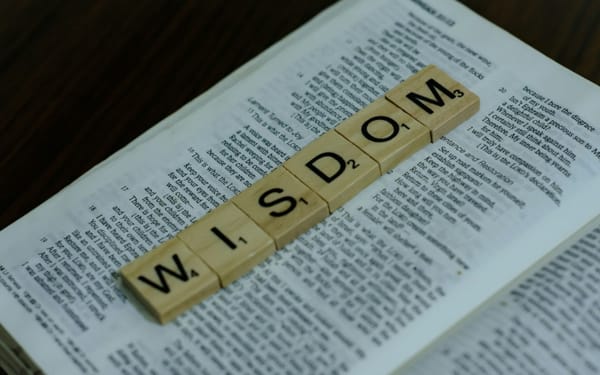What Would I Do if I Had Only Three Years Left to Live?
The reality of death is one many often attempt to avoid. But doing so is a mistake. Instead, life is best lived when it is done in reverse with eternity in mind.

This was a question I pondered several months ago as I listened to a sportscaster interview with a former athlete who had Lou Gehrig’s disease. According to current statistics, the mean survival time for someone battling ALS is three to five years. And as I sat and listened to how this disease had ravaged this man’s body, tears started to form in my eyes, and I couldn’t help but think of my own mortality.
Being a young, healthy male in the "prime of my life," mortality isn’t a concept modern culture says I should address. Unlike societies of the past where death was common and life expectancy was short, the question of my inevitable death isn’t one Western culture says I should address until much later in life. Most self-help material and media advertisements preach a message that says, “Live for the present and think little of the future.” Yes, think about death one day. But not today.
In his posthumously published memoir, When Breath Becomes Air, American neurosurgeon Paul Kalanithi writes of his struggle with his own mortality when he was diagnosed with stage IV metastatic lung cancer. A graduate of Stanford University and the Yale School of Medicine, where he graduated at the top of his class, it was clear Kalanithi would have no shortage of hospitals for employment. But all of this suddenly changed after a staggering diagnosis turned his dreams upside down. In an instant, he switched from thinking about how he would spend the next forty years of his career, to whether he would make it through the next twelve months, and it left him to make this somber observation:
I began to realize that coming in such close contact with my own mortality had changed both nothing and everything. Before my cancer was diagnosed, I knew that someday I would die, but I didn’t know when. After the diagnosis, I knew that someday I would die, but I didn’t know when. But now I knew it acutely. The problem wasn’t really a scientific one. The fact of death is unsettling. Yet there is no other way to live.
Everyone knows they will die. But Kalanithi’s point is that not everyone lives with this reality at the forefront of their minds. Instead, most do their best to suppress this unpleasant thought with fleeting pleasures, lofty goals, and adventuresome pursuits. In Living Life Backwards, David Gibson writes, “Death is the one ultimate certainty that we erase from our minds and busy ourselves to avoid facing.”
Perhaps one of the most damning aspects of modern technology has been its tug to keep us tethered to all that is temporary. From the moment we wake to the moment we sleep, our phones shift our attention to everything that has little lasting value. A 6 AM email from our employer reminds us of an impending deadline. The morning weather channel reminds us of unsettling weather patterns that might unfold throughout the day. And our morning commute to work is interrupted by a text from our spouse, reminding us to pick up groceries on the way home. Then, at the close of the day, to numb our brains to all the temporary challenges we face, we binge-watch a TV program to ensure we never have to face the most pressing questions our mind seeks to ask. The net result is we spend much of our days engaged in activity, but very little time questioning if this activity has any intrinsic meaning.
In Top Five Regrets of the Dying, Australian nurse Bronny Ware lists the five regrets her dying patients expressed to her shortly before they passed. These were people who got down to the end of life and realized much of what they did was fruitless. What they thought would make them happy only increased their dissatisfaction. These regrets included:
• I wish I'd had the courage to live a life true to myself, not the life others expected of me.
• I wish I hadn't worked so hard.
• I wish I'd had the courage to express my feelings.
• I wish I had stayed in touch with my friends.
• I wish that I had let myself be happier.
If there is a common theme to each of these five regrets, it’s allowing the expectations of others to dictate the way we run our lives. And the problem most people face today is the overwhelming weight of expectations placed on them through their unhealthy mass exposure to others. One social media post can be reached by thousands of followers in seconds, allowing them to compare or challenge our views. Up until just a few years ago, such an instantaneous platform was unthinkable.
My point is not to launch into an extended diatribe on the dangers of the Interwebs. But it’s safe to say that never in history have humans had the ability that we have today to succumb to the distractions and expectations of others. And when we give in to these unattainable demands, we crowd out all thoughts of the meaning of life itself. Never has there been more opportunity to do. And never has there been more opportunity to do what doesn’t matter.
But surely the best lives are ones lived in reverse, where the reality of death is not avoided but embraced.
Several years ago, as I worked through what I might do if I only had three years left to live, I sat down on my front porch area, took out my phone, and jotted down a list of priorities that would govern my existence. If I knew my time on earth was short, I would:
- Seek to know God so well that eternity with him felt like a natural transition.
- Regularly look my wife and kids in the eyes and make each moment show my love for them.
- Spend time with people that made me laugh.
- Share my life experiences with others and do all I could to encourage them.
- Find people who knew the sting of pain and sit with them.
- Get connected with as many people in my church as possible. Tell a bunch of people about Jesus.
To me, these are the things that really matter. Everything else is tertiary. And the natural progression of thought led me to an additional question: If this was the way I would live with only three years remaining, why wouldn’t I live this way if there were sixty years remaining?
Byer's Choices
Ask yourself, where do I feel the closest to God and where do I feel the furthest? Do you feel distant when you engage in a particular hobby, watch a certain TV series, or spend large amounts of time in a mindless endeavor? If so, find those areas of your life that are not "God-giving" and remove them from your life.
Take out a piece of paper or open the notes app on your phone and answer this question. What would my priorities look like if I knew I only had three years left to live?
At age thirty, Jesus knew he only had three years left to live. But in those three years, he made an extraordinary impact on the lives of others that continues to have reverberating effects to this day.





